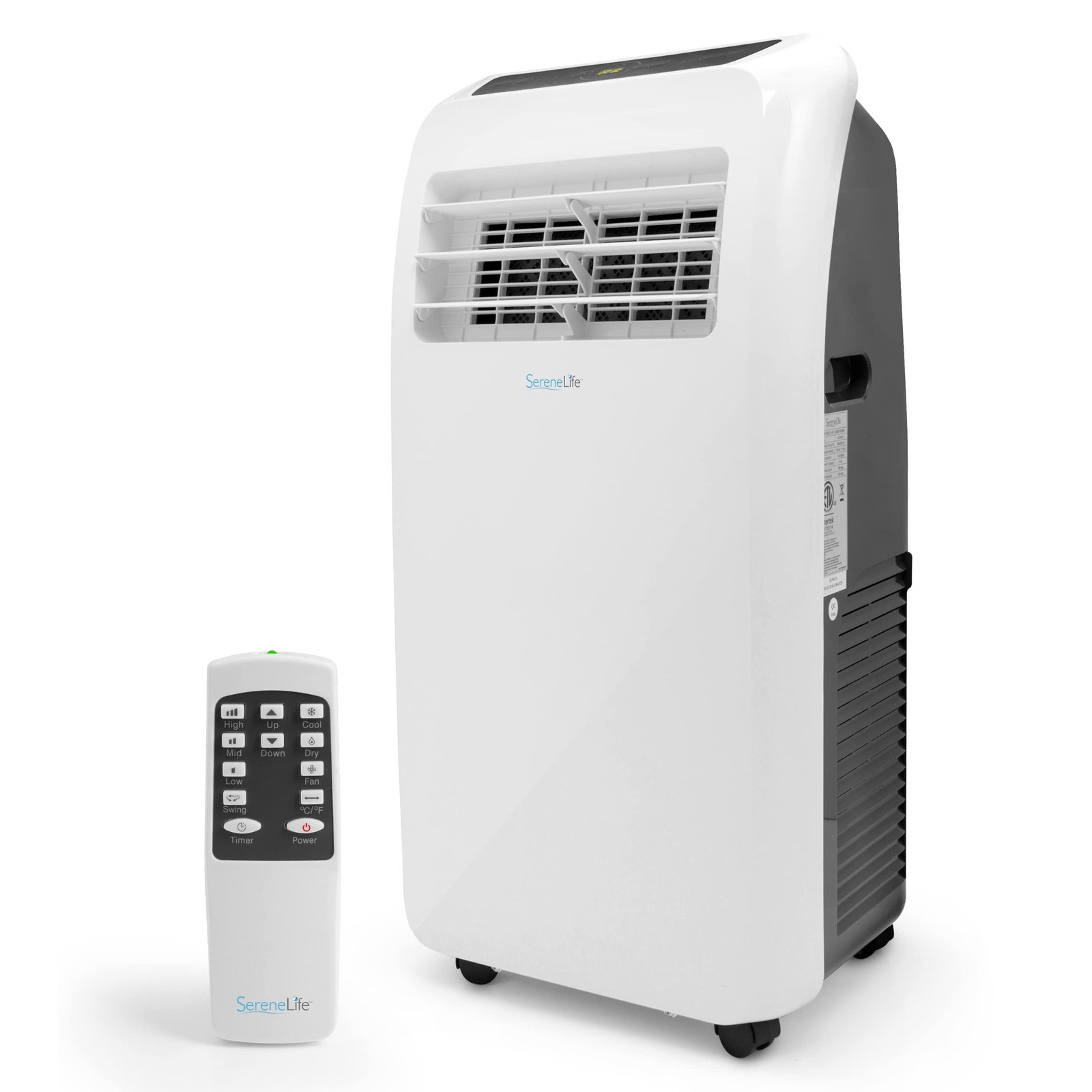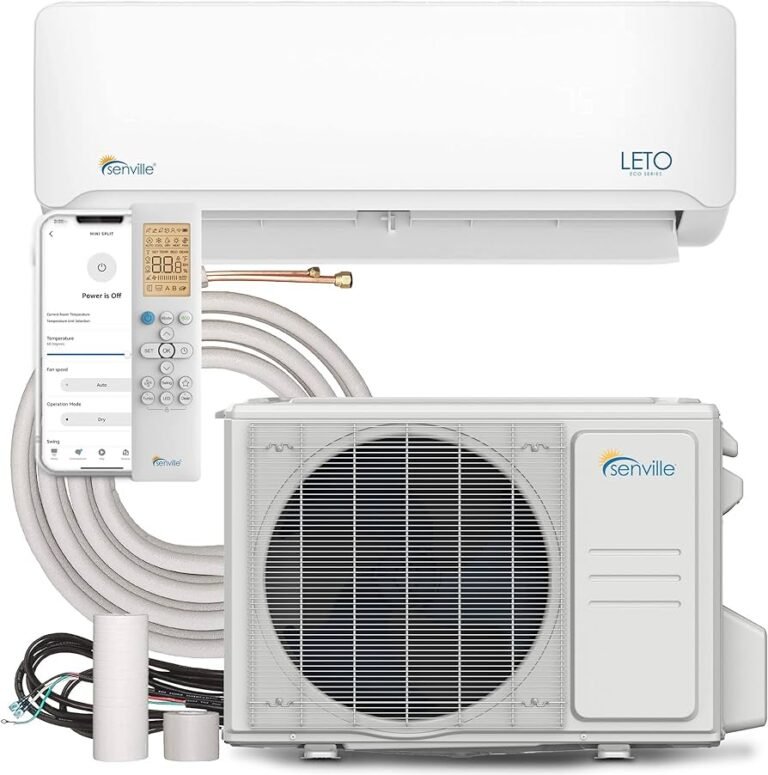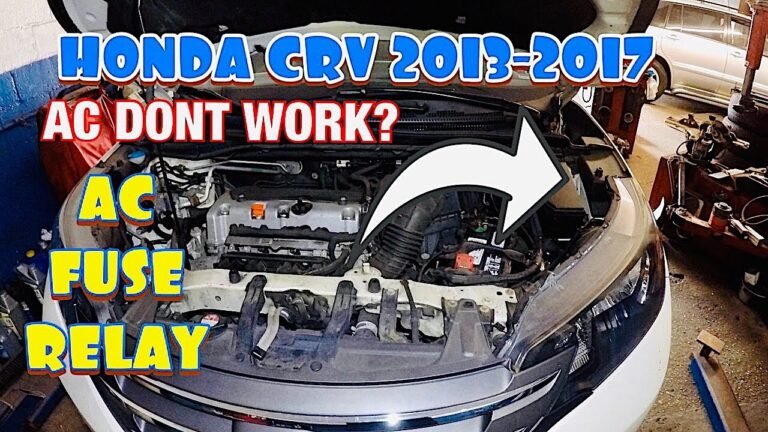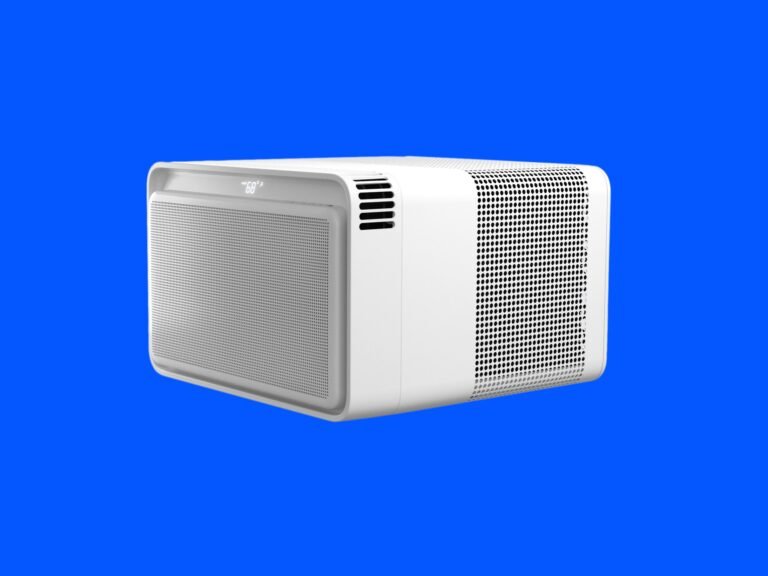Does Inverter AC Save Electricity? Discover the Energy-Efficient Cooling Effect!
Yes, inverter air conditioners save electricity by adjusting compressor speed based on cooling needs, resulting in reduced energy consumption. Inverter air conditioners are energy-efficient appliances that help in reducing electricity bills while providing comfort in hot summers.
By automatically adjusting the speed of the compressor, these air conditioners maintain a consistent temperature without constantly starting and stopping, saving more energy compared to traditional air conditioners. This technology allows the compressor to work at different speeds, depending on the required cooling load, resulting in better energy efficiency.
With their ability to optimize energy usage, inverter air conditioners are a wise choice for reducing electricity consumption and saving money in the long run.
Understanding Inverter Ac: A Revolution In Energy Efficiency
Understanding Inverter AC: A Revolution in Energy Efficiency
Inverter air conditioners (ACs) have gained significant popularity in recent years due to their energy-saving capabilities. Unlike conventional ACs, which operate on a fixed speed compressor, inverter ACs utilize advanced technology that allows the compressor to adjust its speed according to cooling demands. This technology ensures that the AC always operates at the optimal speed, resulting in reduced energy consumption and lower electricity bills.
By continuously varying the compressor speed, inverter ACs maintain a consistent temperature in the room. They require less energy to cool or heat the air, as they do not need to stop and start frequently unlike traditional ACs. This also leads to a quieter operation, as the compressor does not produce loud noises during its operation.
The benefits of inverter ACs are not limited to energy efficiency alone. These systems provide faster cooling and heating, ensuring optimal comfort throughout the year. Additionally, they maintain a more stable temperature, reducing temperature fluctuations and creating a more pleasant living environment.
Investing in an inverter AC can be a wise decision for both cost savings and increased comfort. With their advanced technology and energy-saving features, these ACs offer a revolution in energy efficiency that not only helps save electricity but also contributes to a greener future.
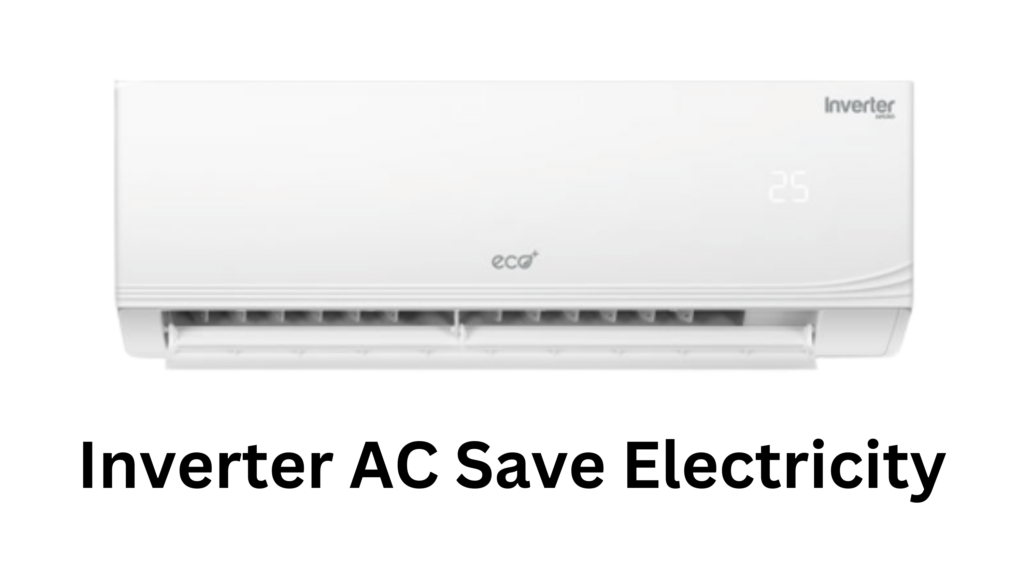
The Energy-saving Mechanism Of Inverter Acs
html
Inverter air conditioners (ACs) are designed to save electricity and provide efficient cooling. They achieve this by adjusting the speed of the compressor based on the cooling needs of the room. The variable speed motors in inverter ACs play a crucial role in this energy-saving mechanism.
Traditional ACs work on a fixed speed compressor that runs at full power until the desired temperature is reached, and then it turns off. When the temperature rises, the compressor starts again, consuming high energy in the process. On the other hand, inverter ACs use a variable speed motor that adjusts the compressor speed according to the cooling requirement. This avoids the excessive on-off cycles, resulting in efficient and consistent cooling, while consuming less electricity.
Comparing energy consumption between inverter ACs and conventional ACs, the former is known to be more energy-efficient. Inverter ACs can consume up to 40% less electricity compared to their non-inverter counterparts. This is because they continuously regulate the compressor speed to match the cooling demand, reducing energy wastage and saving costs in the long run.
| AC Type | Energy Consumption |
|---|---|
| Inverter AC | Consumes up to 40% less electricity |
| Conventional AC | Consumes more electricity due to high on-off cycles |
Advantages Of Inverter Acs In Saving Electricity
Inverter air conditioners offer several advantages when it comes to saving electricity and reducing utility bills. One of the key benefits is improved energy efficiency. Unlike conventional ACs that run at a fixed speed, inverter ACs have variable speed compressors which allow them to adjust their cooling capacity based on the room’s temperature. This means that they consume only the required amount of energy to maintain the desired temperature, resulting in significant energy savings.
Another advantage of inverter ACs is their lower environmental impact. By operating more efficiently, they reduce the overall carbon emissions associated with cooling. This is particularly important as the world is becoming increasingly conscious of the need to minimize greenhouse gas emissions and combat climate change.
In addition to energy savings and environmental benefits, inverter ACs also have an extended lifespan compared to traditional models. The variable speed compressor reduces wear and tear, leading to less frequent repairs and replacements. This can result in cost savings in the long run, making inverter ACs a more economically viable option.
Factors Affecting Energy Efficiency Of Inverter Acs
Size and cooling capacity considerations, proper installation and regular maintenance, and appropriate usage and settings are some of the key factors that affect the energy efficiency of inverter air conditioners. When choosing an inverter AC, it is important to consider the size and cooling capacity of the unit as per the room or area it will be used in. An incorrectly sized AC may result in inefficient cooling and unnecessary power consumption.
Proper installation and regular maintenance are crucial for ensuring optimal energy efficiency. An improperly installed AC may lead to air leakage and reduced cooling performance. Regular maintenance, including cleaning or replacing filters, checking refrigerant levels, and inspecting electrical connections, can help maintain the AC’s efficiency over time.
In addition, appropriate usage and settings can significantly impact energy savings. Setting the temperature to a moderate level and utilizing built-in energy-saving modes can help reduce power consumption. It is also important to avoid unnecessary cooling or running the AC in unoccupied rooms. Simple practices like keeping doors and windows closed while the AC is running can further enhance energy efficiency.
Calculating Energy Savings With Inverter Acs
html
Understanding Energy Efficiency Ratio (EER) and Star Ratings:
Inverter air conditioners have gained popularity due to their potential energy savings. The Energy Efficiency Ratio (EER) is an important factor to consider when determining the efficiency of an air conditioner. Higher EER ratings indicate better energy efficiency, which translates to lower electricity consumption.
Star Ratings are also used to measure the efficiency of inverter ACs. Higher star ratings signify greater energy savings. For instance, a 5-star inverter AC consumes considerably less electricity compared to a 3-star variant.
Estimating the potential electricity savings with inverter ACs:
Inverter air conditioners offer significant energy savings compared to conventional models. Their ability to adjust the compressor speed based on the cooling demand leads to reduced power consumption. This adaptive technology ensures that ACs operate at optimal levels, preventing energy wastage.
Real-life examples and case studies showcasing energy savings:
There are numerous real-life examples and case studies that demonstrate the energy-saving benefits of inverter air conditioners. These studies compare the electricity consumption of conventional ACs with inverter models in similar usage scenarios. The results consistently show that inverter ACs provide substantial energy savings, translating into lower electricity bills.
Other Benefits Of Inverter Acs
Inverter air conditioners not only save electricity but also offer a range of other benefits that make them a preferred choice. Enhanced comfort and better humidity control are two significant advantages of inverter ACs. The continuous cooling and heating capabilities of these units ensure a consistent and comfortable indoor environment. With traditional air conditioners, as the compressor switches on and off, the humidity levels fluctuate, causing discomfort. Inverter ACs, on the other hand, maintain a steady cooling or heating process, effectively controlling the humidity levels and providing improved comfort.
Moreover, inverter ACs operate at lower noise levels compared to conventional units. This quiet operation allows for a peaceful living or working environment without any disturbances. Additionally, inverter ACs often come with extra features and smart technology integration to enhance user experience. These features may include Wi-Fi connectivity, smartphone control, advanced filters, and energy-saving modes. The integration of smart technology enables users to conveniently regulate and monitor the AC settings through their smartphones or other smart devices.
| Benefits of Inverter ACs |
|---|
| Enhanced comfort and better humidity control |
| Quieter operation and reduced noise levels |
| Additional features and smart technology integration |
Choosing The Right Inverter Ac For Your Needs
Understanding the different types and models available:
Inverter air conditioners have gained popularity in recent years for their energy-saving benefits. They work by adjusting the compressor speed to maintain the desired room temperature, resulting in cost-efficient cooling. But with so many options on the market, how do you choose the right one for your needs?
Factors to consider when selecting an inverter AC:
| Factor | Consideration |
|---|---|
| Capacity | Determine the appropriate cooling capacity based on the size of your room. |
| Energy Efficiency | Look for models with higher energy efficiency ratings to save on electricity bills. |
| Features | Consider additional features like Wi-Fi connectivity, smart controls, and air purification. |
| Brand Reputation | Research and choose a reputable brand known for its quality and reliability. |
Recommendations for efficient cooling and cost-effective usage:
- Set the temperature to an optimal level to avoid unnecessary power consumption.
- Maintain regular servicing and cleaning to ensure the AC operates smoothly.
- Use curtains or blinds to minimize heat from direct sunlight.
- Consider installing a programmable thermostat to optimize energy usage.
By understanding the different types and models available and considering important factors, you can select the right inverter AC that not only provides efficient cooling but also helps you save electricity and reduce your carbon footprint.
Tips For Maximizing Energy Efficiency With Inverter Acs
html
Proper maintenance and servicing guidelines are crucial in ensuring the energy efficiency of your inverter air conditioner. Regularly cleaning and replacing air filters prevent dust accumulation, improving airflow and system performance. Keeping the evaporator and condenser coils clean also enhances cooling efficiency.
In addition to maintenance, utilizing energy-saving modes and features can further reduce energy consumption. Take advantage of the inverter AC’s timer feature to schedule cooling only when needed. Adjusting temperature settings to a comfortable level instead of extreme cooling will also contribute to energy savings.
Supplementary tips for energy conservation in cooling include ensuring proper insulation to eliminate air leaks, which can strain the system. Utilizing ceiling fans in conjunction with the AC can help circulate cool air efficiently, allowing for higher thermostat settings. Finally, avoiding direct sunlight on the AC unit helps prevent unnecessary heat absorption.
| Guidelines | Benefits |
|---|---|
| Regular maintenance and servicing | Improves performance and energy efficiency |
| Utilize energy-saving modes and features | Reduces energy consumption |
| Ensure proper insulation | Eliminates air leaks and system strain |
| Use ceiling fans in conjunction with AC | Improves air circulation and allows for higher thermostat settings |
| Avoid direct sunlight on the AC unit | Prevents unnecessary heat absorption |
Frequently Asked Questions Of Does Inverter Air Conditioner Save Electricity
How Does An Inverter Air Conditioner Save Electricity?
Inverter air conditioners use variable speed motors that adjust the output according to the cooling needs. This means that the compressor does not need to constantly turn on and off. It runs at a lower speed, saving energy by consuming only the required amount.
Are Inverter Air Conditioners More Energy-efficient Than Conventional Ones?
Yes, inverter air conditioners are more energy-efficient than conventional ones. The variable speed compressor adjusts the cooling output, consuming only the necessary energy. This results in reduced electricity consumption and lower utility bills.
Can An Inverter Air Conditioner Help In Reducing Carbon Footprint?
Yes, inverter air conditioners can help in reducing carbon footprint. By consuming less energy and running at a lower speed, they significantly reduce greenhouse gas emissions. This makes them an eco-friendly choice that contributes to a sustainable environment.
Do Inverter Air Conditioners Provide Better Cooling Performance?
Yes, inverter air conditioners provide better cooling performance. The variable speed compressor adjusts the cooling output based on the room temperature, resulting in more precise and consistent cooling. This ensures a comfortable living environment even during extreme weather conditions.
Conclusion
Inverter air conditioners are a smart choice for those looking to save electricity and reduce energy costs. These appliances use advanced technology that allows them to adjust their power output according to the cooling needs, resulting in less energy wastage.
With their ability to operate at variable speeds and maintain consistent temperatures, inverter air conditioners provide efficient cooling with minimal electricity consumption. Investing in an inverter air conditioner is not only beneficial for your pocket but also for the environment.

